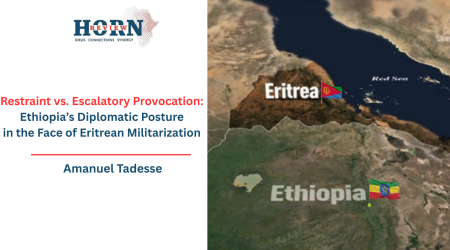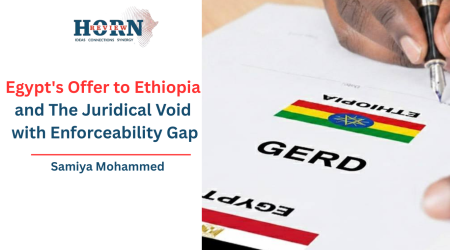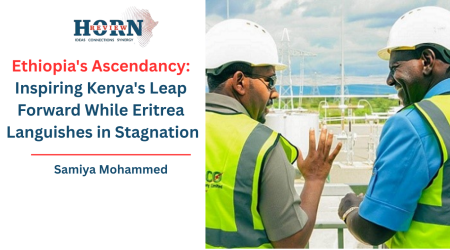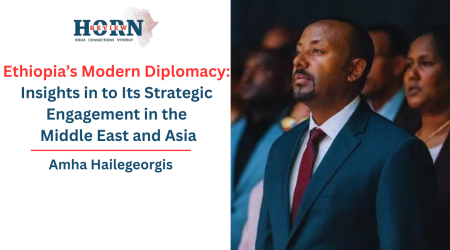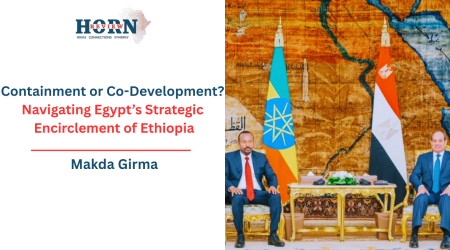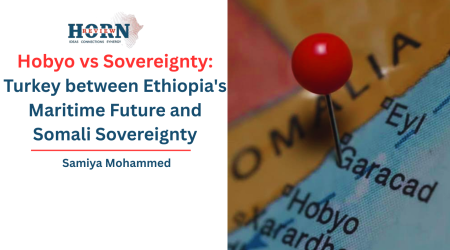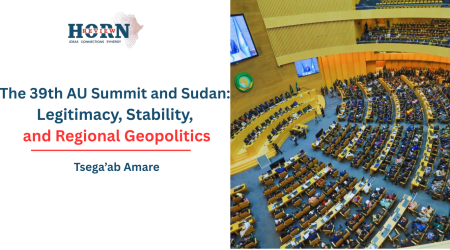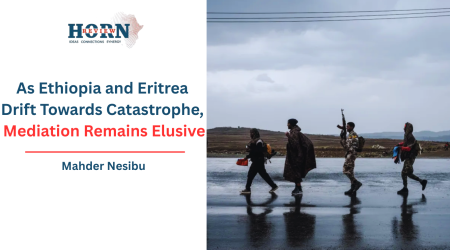
21
Mar
Ethiopia’s Quest for Sea Access: Abiy’s Diplomatic Push and Eritrea’s Uncertain Role
Ethiopian Prime Minister Abiy Ahmed has ruled out war with Eritrea while reaffirming his country’s determination to secure access to the sea. In his March 19, 2025, address to parliament, Abiy emphasized that Ethiopia’s pursuit of maritime access is a strategic necessity, and never intended to be a percieved or actual threat of aggression. However, the issue remains delicate, as Eritrea’s position on the matter is unclear, and broader regional dynamics could influence the outcome.
Since taking office in 2018, Abiy has prioritized diplomatic engagement with Eritrea, culminating in a historic peace agreement that ended two decades of hostility between the two nations. The rapprochement was widely seen as a breakthrough for regional stability, fostering economic and political cooperation. However, relations between the two countries have since faced challenges, with differing strategic interests and political tensions occasionally straining ties.
The recent developments in Ethiopia’s Tigray region, where the “Tigray Defence Forces (TDF)” led by Debretsion’s TPLF faction took control of Mekele removing Getachew Reda’s Interim Administration on March 14, have added further complexity. Eritrea, which played a significant role in the previous conflict in Tigray, has yet to make any official moves, but its alleged contacts with Debretsion’s factiom and its implicit opposition to a strong federal government in Addis Ababa raises questions about its future actions.
Amid these uncertainities, Ethiopia’s maritime ambitions and its potential to reshape the geopolitical landscape of the Horn of Africa will depend on the course of diplomacy in the coming months. Key regional and international players, particularly Saudi Arabia, Turkey, and the UAE, are expected to play an important role in managing rising tensions between Ethiopia and Eritrea. These countries have strong economic and strategic interests in the Red Sea and the Horn of Africa, making them likely mediators in any negotiations regarding Ethiopia’s access to the sea. Their influence, whether through regional cooperation or broader international engagement, could shape the future of Ethiopia’s economic aspirations and help facilitate diplomatic solutions that prevent further instability.
Ethiopia to Inaugurate GERD Amid Growing Regional Tensions and Strategic Rivalries
Ethiopia is set to inaugurate the Grand Ethiopian Renaissance Dam (GERD) at the beginning of the next Ethiopian year, as declared by prime minister Abiy Ahmed, marking a historic achievement in its pursuit of energy independence and regional economic integration. Prime Minister Abiy Ahmed, in a recent address to parliament, emphasized the significance of GERD as a symbol of African resilience and self-reliance. Fully financed through domestic resources, the dam is primarily designed to generate electricity, with Ethiopia affirming that its goal is not to harm downstream countries such as Egypt. Abiy expressed confidence that this generation will continue to undertake similar transformative projects in the future.
However, the GERD inauguration comes at a time of rising geopolitical tensions. Egypt has consistently opposed the dam, citing concerns over its water security, given the Nile’s critical importance to the country. In response, Egypt has been strengthening strategic alliances with Ethiopia’s neighboring countries, including Eritrea, Somalia, Sudan, Uganda, and Kenya, seeking to diplomatically and militarily encircle Ethiopia. Egypt’s engagements with Eritrea and Somalia, both of which border Ethiopia, are seen as efforts to apply pressure on Ethiopia from multiple fronts. Additionally, Egypt’s growing influence in Uganda and Kenya further restricts Ethiopia’s maneuverability in the region, leading to perceptions that Egypt is attempting to isolate Ethiopia in regional discussions and curtail its growing influence in the Horn of Africa.
In response, Ethiopia has focused on reinforcing its own regional alliances while leveraging the energy potential of GERD to enhance its economic and strategic position. Despite Egypt’s efforts, Ethiopia remains committed to regional cooperation, reaffirming its intention to avoid harming Egypt while asserting its rights over the Nile’s resources. The completion of GERD is expected not only to provide crucial energy for Ethiopia but also to contribute to the development of neighboring countries through power exports, thus strengthening Ethiopia’s role in regional integration.
As Ethiopia prepares for the GERD’s inauguration, the future of Nile Basin politics remains uncertain, with the balance of power between Ethiopia and Egypt continuing to evolve. The coming years will be crucial in determining whether diplomatic engagement can outweigh strategic rivalry as both nations navigate their complex relationship over shared water resources.

